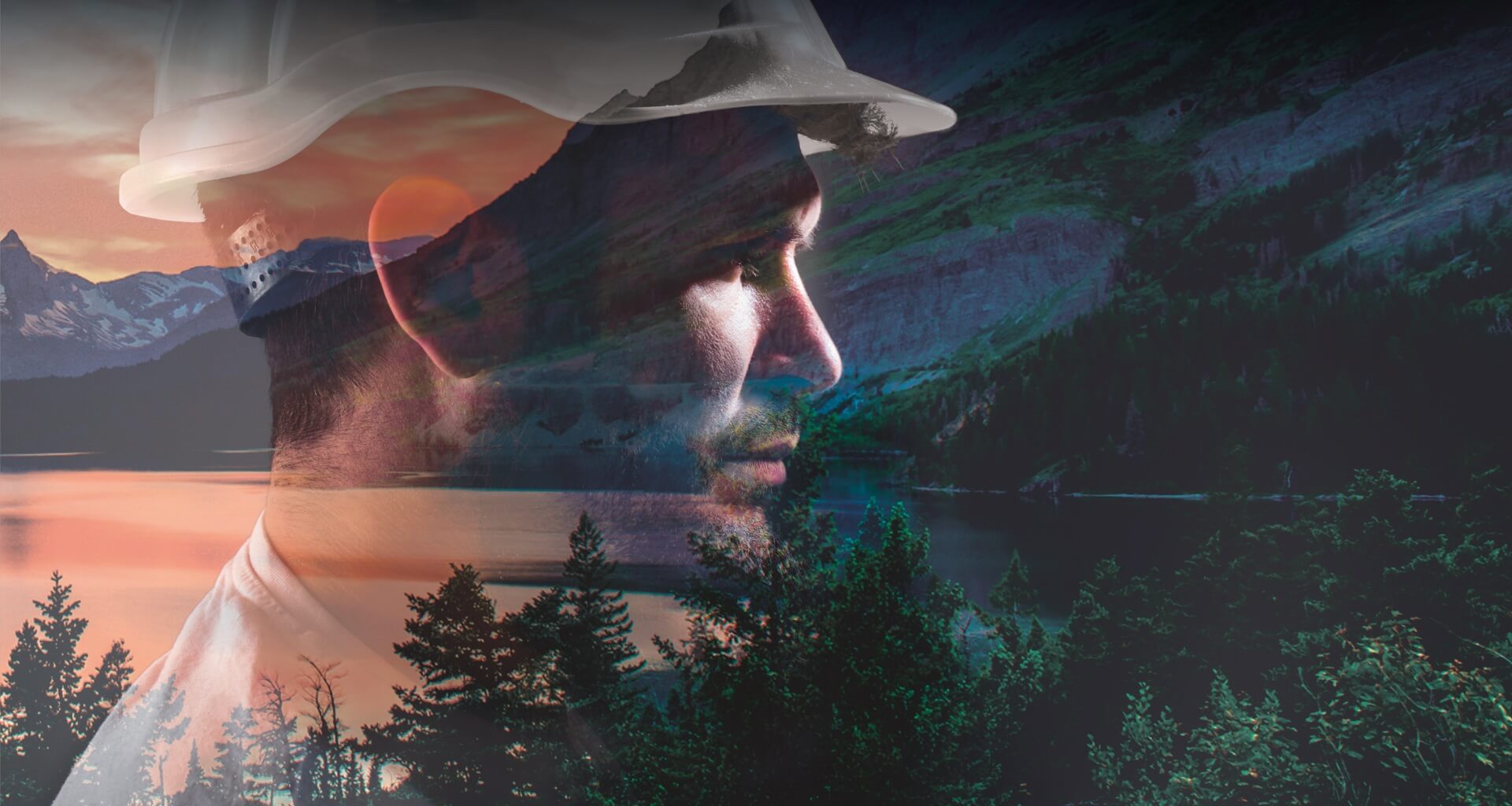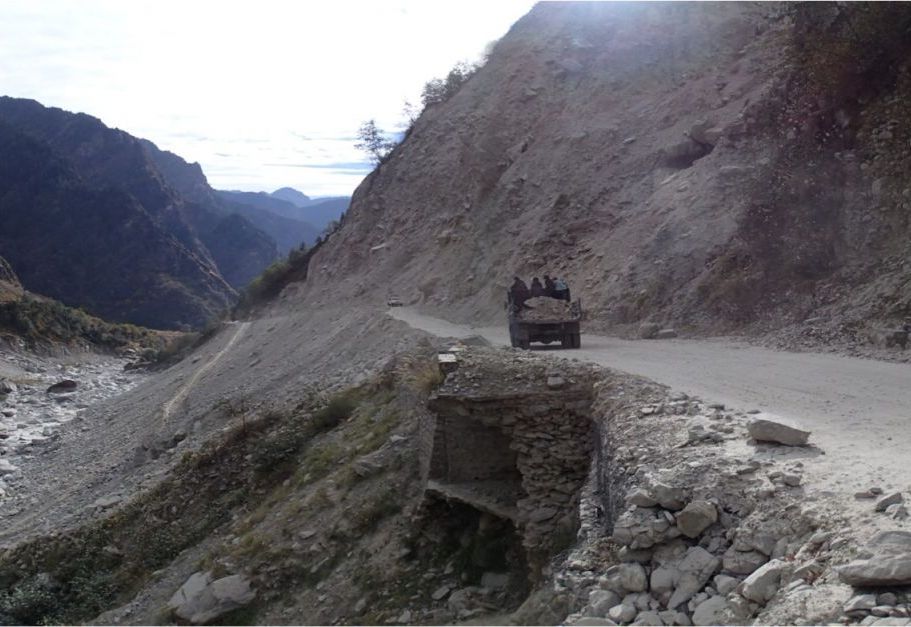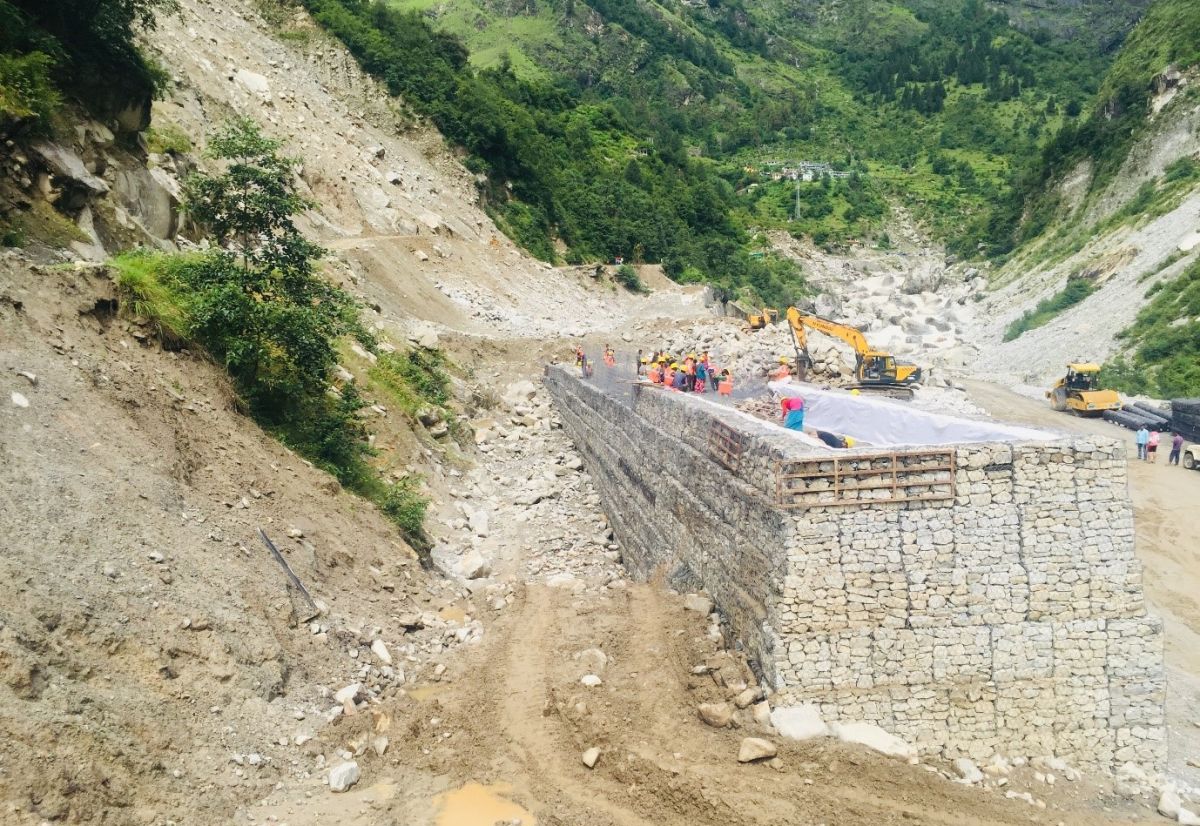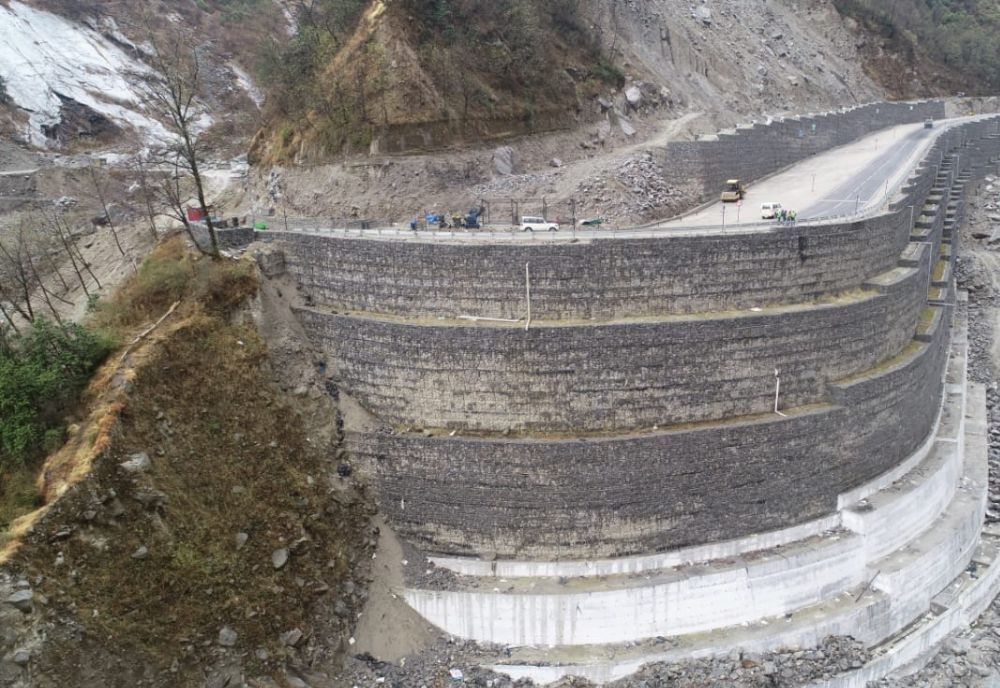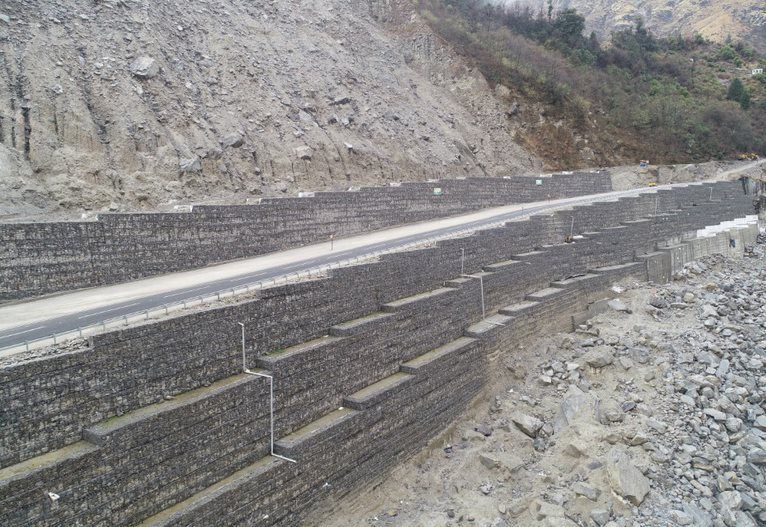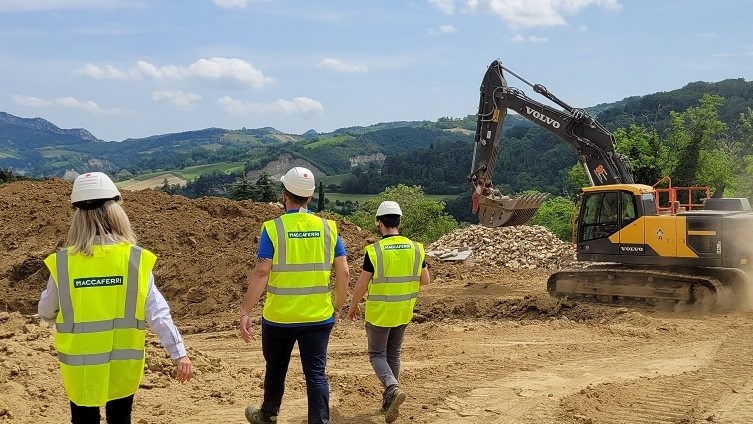Slope Protection
2021
LAMBAGARH - UTTARAKHAND - India
NH-Uttarakhand PWD
MITIGATION OF LANDSLIDE ZONE AT NH-58, LAMBAGARH
Problem
Lambagarh slide is located on NH-58, the road leading to the holy shrine of Badrinath which receives large number of visitors every year. The slide is very steep with an average inclination of 60°, near vertical at the crest and 34-38° below the road. Alaknanda river runs along the toe of the slide. Deep gullies can be seen on the face of the slide due to surface runoff, leading to erosion of fines, loosening of boulders, toe cutting and formation of overhangs. This area comes under chronic slip zone with slides hampering traffic every rainy season. In 2013, the road was badly damaged because of landslide caused by the flash floods. The main causative forces were: • Toe erosion by river Alaknanda. • Water seepage (glacier melting). • Rainfall (triggers the surface erosion). • Steep slope. • Anthropogenic activities. The site faced challenges of limited uninterrupted working period of only 5 months, clearances, maintenance of existing roads and slides on hill side. The client was looking for an effective and innovative solution to protect the road from landslides.
Solution
Maccaferri worked in a JV to implement slope stabilization solutions for landslide zone between Km 504.00 to Km 505.00 on NH-58. It included shifting of the existing road from its current location through construction of a flexible reinforced soil wall (RS wall) with gabions as facia (Maccaferri Terramesh® system- 3m*1m*1m and 0.5m with 2m long integrated tail) and high strength geogrid (ParaLink®) as reinforcement towards the valley side. This counteracted the destabilizing forces due to heavy hill surcharge with seepage. The height of the wall varied from 27m to 44m and length is 500m. The stones and backfill material for the wall were locally sourced hence making the solution economical with low carbon-footprint. Structure was protected from scour and boulder hit with RCC jacketing upto a depth 5m below bed level. A rockfall embankment (using back to back Terramesh® and ParaLink® reinforcement) of 320m length and 10m height was constructed at hill side toe to protect road from direct impact of falling debris and rocks. A new flexible pavement was also constructed as part of the project.
